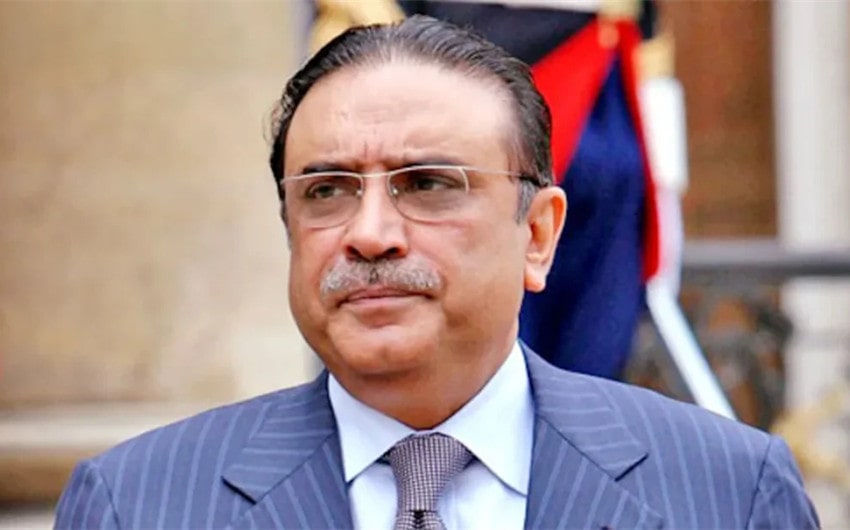Tracing Asif Zardari’s Net Worth: Legacy, Power, and the Layers Between
There are names that echo in a nation’s memory not because of what they said—but because of what they represent. In Pakistan, Asif Ali Zardari’s name belongs to a dynasty woven with triumph, grief, and constant scrutiny. A former president. A businessman. A husband to Benazir Bhutto. A political survivor in a landscape that rarely allows it.
When you try to trace the net worth of someone like Zardari, you don’t just chase numbers. You chase shadows. Holdings. Allegations. Real estate portfolios spread across continents. A life lived between the public eye and private silence. And behind it all, a question with no easy answer: how do you calculate wealth when it’s built alongside—and sometimes within—political power?
What the Public Records Suggest
Officially, Asif Zardari has declared assets worth several billion Pakistani rupees—translating to an estimated net worth between $1.8 billion and $2 billion USD according to various international and regional sources. These figures are not universally agreed upon, and they fluctuate depending on the lens through which you choose to look: tax records, court cases, foreign property disclosures, or media investigations.
Some of what’s known includes:
- Large land holdings in Sindh province, including agricultural estates
- Luxurious properties in Pakistan, the UAE, the UK, and reportedly Switzerland
- Ownership or influence in various businesses—from sugar mills and real estate developments to private companies affiliated with key industries
- Bank accounts and alleged financial holdings overseas, some of which have been the subject of legal inquiry
But unlike the earnings of a celebrity or entrepreneur, Zardari’s wealth can’t be untangled from his proximity to state power—or the opacity that often comes with it.
The Bhutto Legacy—and What It Costs
Zardari’s story cannot be separated from his late wife, Benazir Bhutto. Their union was political and personal, controversial and iconic. After her assassination in 2007, Zardari became co-chairperson of the Pakistan Peoples Party (PPP) and, eventually, President of Pakistan. With that role came both legitimacy—and intensified focus.
For supporters, he was a stabilizing force during a time of national mourning. For critics, he became a symbol of dynastic politics gone awry. Accusations of corruption trailed him throughout the 1990s and into his presidency, earning him the nickname “Mr. 10 Percent”—a reference to alleged kickbacks and deals made during Bhutto’s second term as Prime Minister.
While many of these charges were either dismissed, expired, or never proven, they’ve left a permanent watermark on how his net worth is interpreted: not simply as a record of success, but as a mirror reflecting Pakistan’s uneasy relationship with wealth and governance.
The Global Dimension of Hidden Wealth
Zardari’s financial profile doesn’t end at Pakistan’s borders. His name has surfaced in international investigations and leaks, including references in money-laundering probes and offshore holdings. There are references to luxury apartments in London and assets held under various names or trusts—stories that live half-confirmed in legal archives and media exposés.
In a 2004 Swiss court case, documents linked to Zardari and Bhutto described millions held in offshore accounts. These cases were closed without conviction, but the public memory rarely closes with them. And while he has denied wrongdoing throughout, the perception remains: wealth accumulated in silence speaks louder than any denial.
Wealth as a Form of Power—and Distance
In countries with fragile institutions, personal wealth often becomes not just a symbol of success—but a shield. It creates distance. Immunity. A parallel universe where different rules apply. For Zardari, wealth isn’t just what he owns. It’s what he can protect. What he can move. What he can make disappear—legally or otherwise.
It’s not unusual for public figures to guard their private fortunes. But in Zardari’s case, the mystery isn’t an accident. It’s the design of a life spent surviving coups, lawsuits, jail time, and political exile. Wealth, for him, may have started as inheritance or business—but today, it exists as something more abstract: armor, legacy, and leverage.
So… What Is He Really Worth?
No one outside a very small circle can say for sure. Estimates place him among the wealthiest political figures in South Asia. But the real question isn’t what he’s worth in dollars. It’s what that worth means in the context of Pakistan’s past, its systems of power, and the generational ripple effects of dynastic leadership.
In some ways, Zardari’s net worth isn’t even about him. It’s about what the public sees when they look at him: a reflection of promises unmet, or of power sustained. A man who has endured scandals most would not survive. A figure who, despite constant controversy, remains embedded in the country’s political machinery.
What You Can Take From This
There are fortunes that dazzle. There are fortunes that inspire. And then there are fortunes like this one—quiet, polarizing, impossible to trace without also tracing history. Asif Zardari’s net worth is not just an amount. It’s a weather system: always shifting, always present, impossible to measure without stepping into a storm of context, memory, and mistrust.
You may never know the full story. But maybe the story itself is the point. The one that makes you think harder—not just about money, but about the way power moves in silence. About the kinds of lives that can be built when scrutiny becomes its own kind of currency. And about what it means to live so far inside the system, you almost become it.
Featured image source: pakistantimes.com






